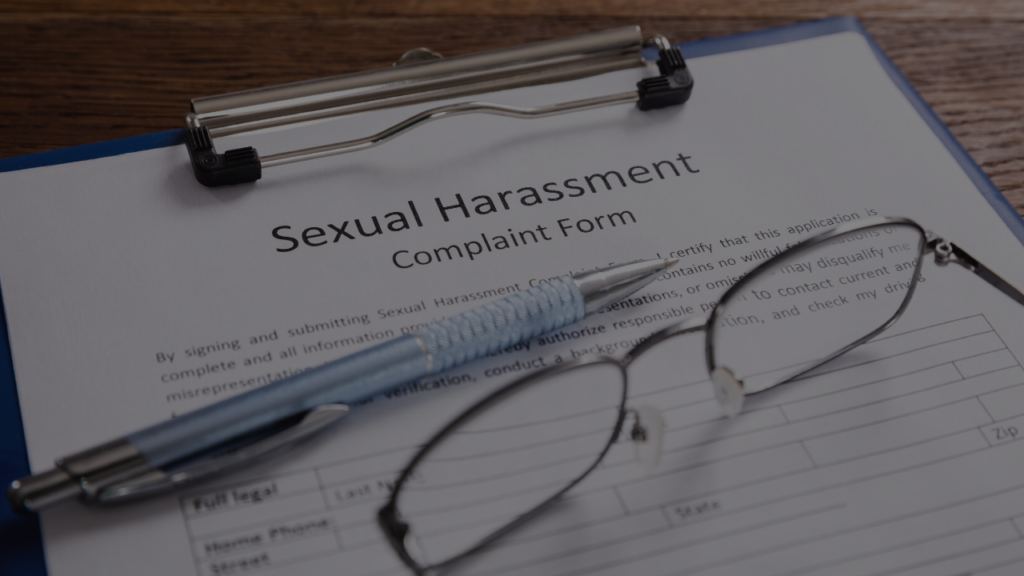Written By Christopher B. Dolan and Vanessa C. Deniston
This week’s question comes from Jessica R., who asks: I’ve been working at a big tech company in the South Bay for about three years now as a software developer. At the outset of my employment, I signed several documents contained in a hiring packet, one of which was an arbitration agreement. I didn’t understand what it was at the time. I just signed it because I thought that’s what I had to do to start work. After some research, I now realize I gave up my right to file a civil case, and any claim arising from my employment will be handled confidentially out of court. A few weeks ago, one of the newly hired managers began making inappropriate sexual remarks to me and one of my co-workers. The behavior has only gotten worse. HR doesn’t seem to take it seriously, either. I’m starting to regret ever having signed that arbitration agreement. Do I have any options, or am I going to be stuck with it?
Hi Jessica,
Thank you for your question. We have some excellent news for you. Last month, on March 3, 2022, President Biden signed H.R. 4445 into law, ending forced arbitration of all claims of sexual assault and sexual harassment arising under federal and state law. The law is effective immediately nationwide. It applies to all past and future agreements, including arbitration agreements signed before the new law went into effect.
The new law applies to any “dispute or claim that accrues on or after the date of the enactment of this Act.” Does a claim “arise” or “accrue” when the actionable conduct occurs or when a case is actually filed? It is unclear. Given the law is so new, its interpretation, thus far, has been limited. There is likely to be a wave of test cases over the next six months, however, seeking to further clarify the applicability of the new law to acts of sexual harassment and assault that occurred before March 3, 2022, and how cases involving sexual harassment and sexual assault occurring before, on, and after March 3, 2022, are to be treated.
What does this mean for you and your circumstances?
- First, the arbitration agreement you signed when you were hired by the company three years ago appears to be covered under this new law.
- Second, the new law will likely apply to your claims as the sexual harassment your supervisor subjected you to appears recent – post-dating March 3, 2022 – and ongoing, which removes some doubt regarding the Act’s applicability to your claims.
Does this Act completely prohibit the arbitration of these types of claims?
No. Depending on the circumstances, an employee that previously signed an arbitration agreement may still wish to avail themselves of the arbitration process. The confidential nature of arbitration may appeal to some employees who don’t wish to have their names publicly associated with embarrassing or explicit sexual harassment or assault details. This law places the power in the hands of the victim to choose which forum they prefer. Thus, should you decide to pursue legal action, you may, at your election, choose which forum you prefer, whether it be arbitration or civil court. If you choose to file sexual harassment claims in civil court against your employer and your supervisor, your employer is unlikely to be successful in compelling you to arbitration, despite your former agreement with them to do so.
Now, for the curveball. As the law is brand new in its application, it is less clear at present how cases will be handled that involve a mix of different claims, one or more of which involve sexual assault or harassment. Suppose for instance, you wish to bring a sexual harassment claim and claims for wage and hour violations. The law is silent on whether the wage and hour violations will be compelled to arbitration. Forcing a victim to pursue two related claims arising out of their employment in two separate forums is neither practical nor a cost-efficient option for them. Time will bear out how such cases will be handled.
One final note for those of you out there that don’t fall squarely within the protections offered by new law. If you do end up in arbitration, there are some further protections for you as a Californian. On January 1, 2019, Senate Bill 820 known as the Stand Together Against Non-Disclosure (STAND) Act became law, prohibiting settlement agreements designed to silence employees from sharing factual information about their experiences of sexual harassment or sexual assault in the workplace. This law also applies to settlement agreements that contain a non-disparagement provision. Thus, despite the confidential forum of arbitration, if a settlement is reached prior to the hearing, your former employer cannot prevent you from discussing about what happened to you. Since 2019, the California legislature has taken it a step further. On January 1, 2022, Senate Bill 331 known as the Silenced No More Act was signed into law, expanding the prohibition to all claims of harassment, discrimination and retaliation under the Fair Employment and Housing Act (FEHA), including claims based on race, sexual orientation, disability, and many others.
If you or someone you know has signed an arbitration agreement and experienced harassment, discrimination, or retaliation in the workplace based on their membership in a protected class under FEHA, contact an attorney such as the Dolan Law Firm to analyze your particular circumstances.










